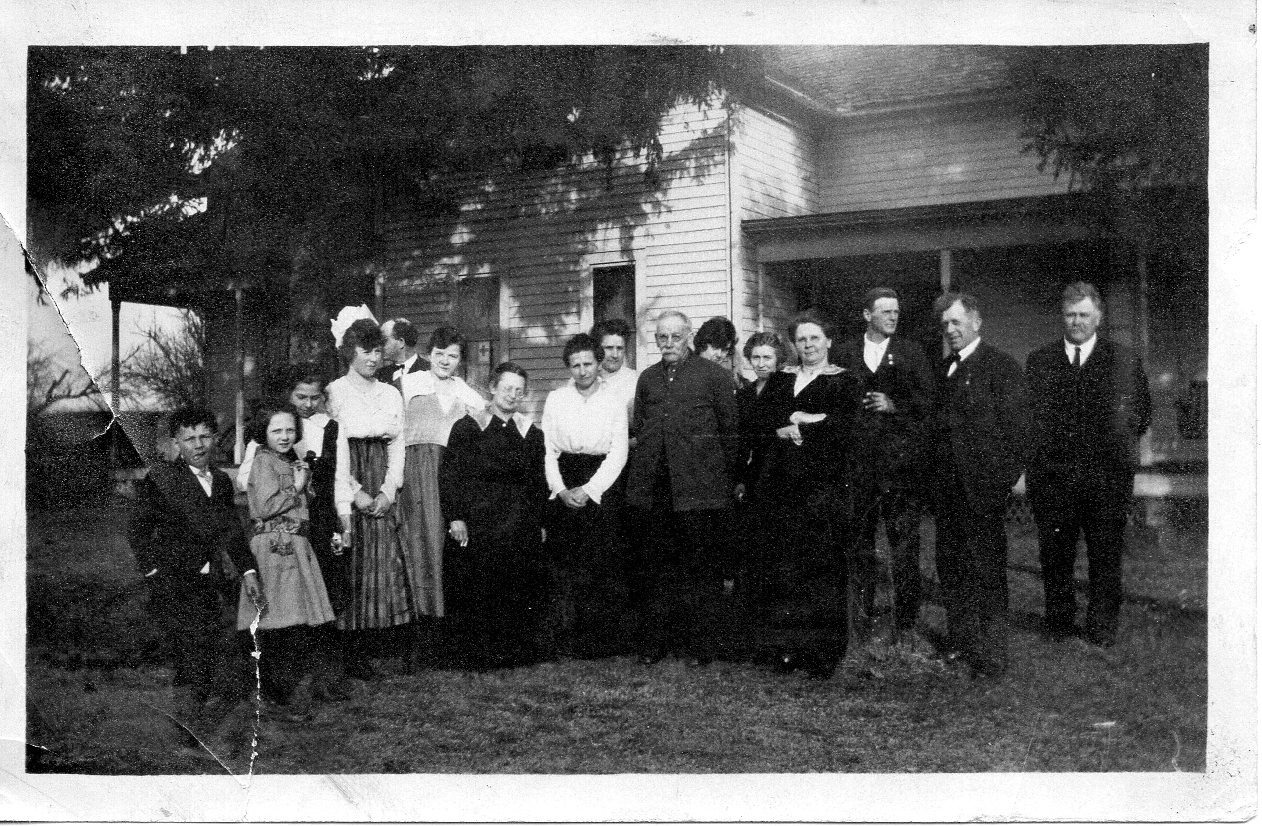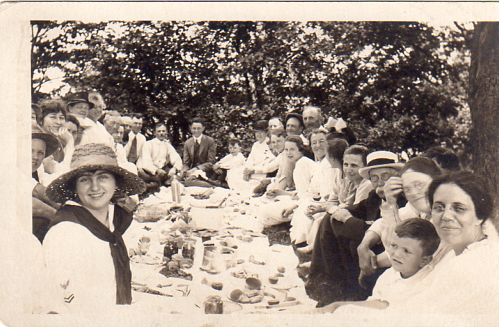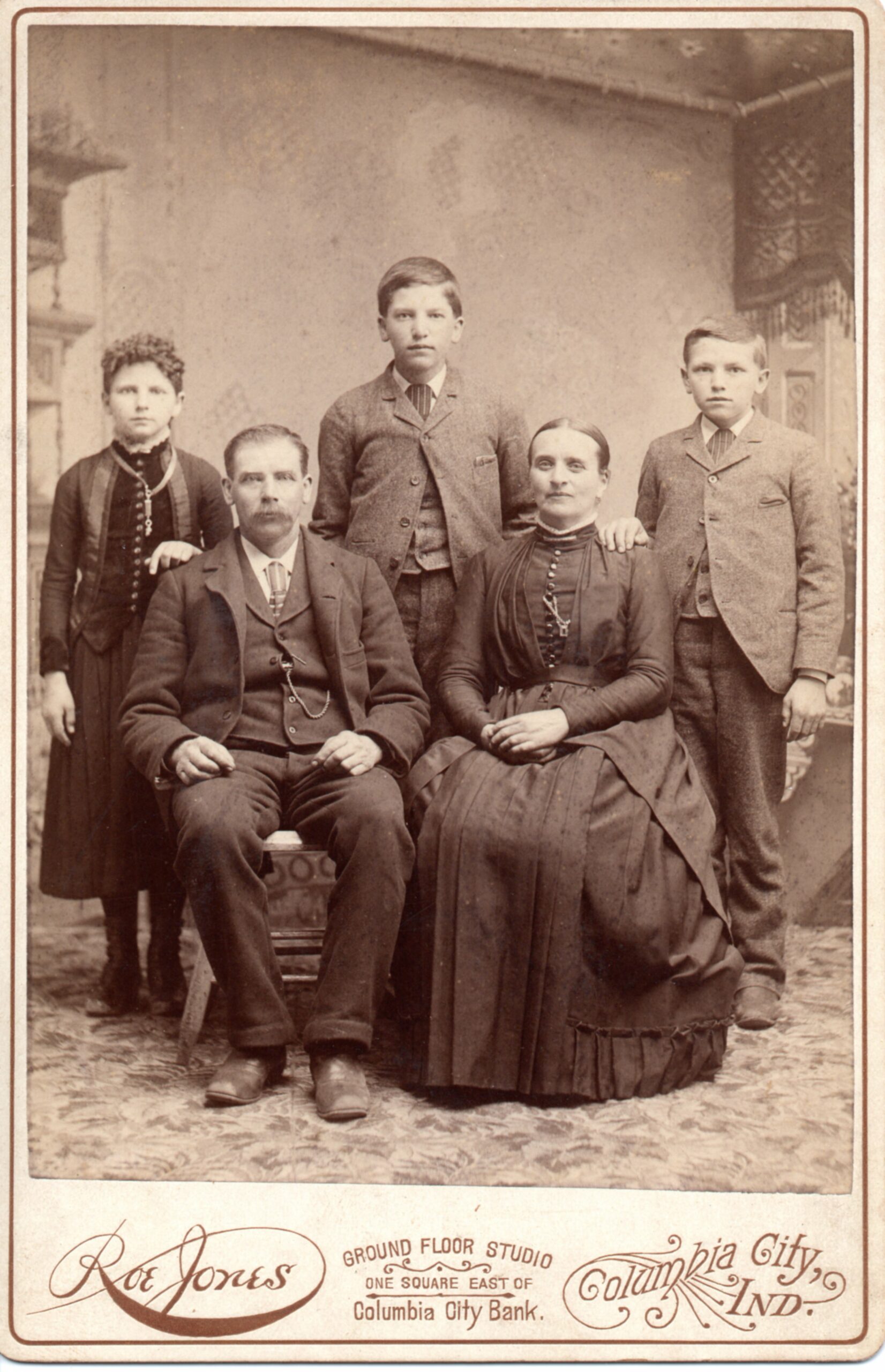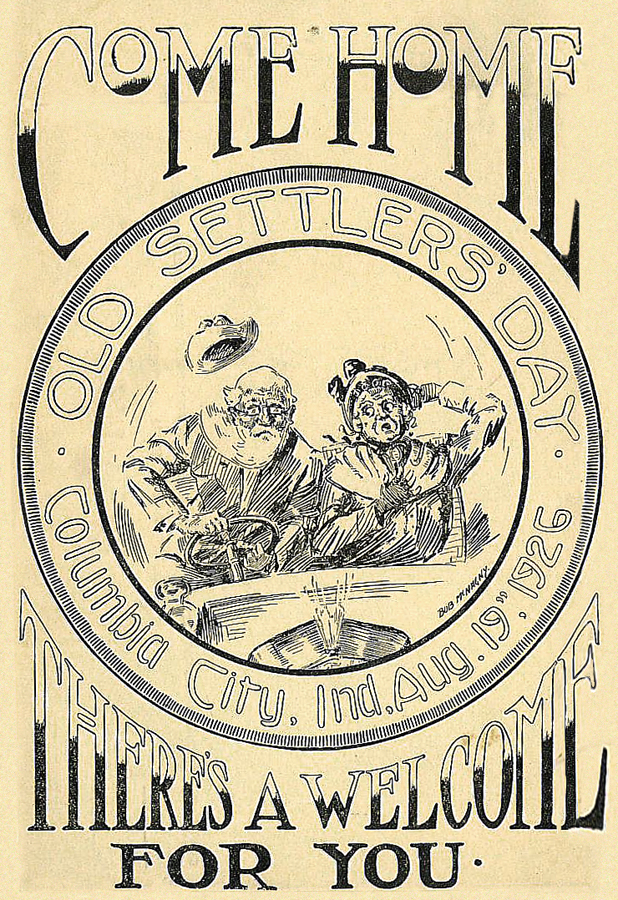
Washington Long woke up early at his daughter Anna’s house. He had not even heard the rooster crow yet, and the sky was still a dark blue as night faded away into the dawn. The old man slept in the front bedroom that Anna and Kellis Hoard added when he moved in. In the latter years of his life, Washington seemed aged and often forgetful. He moved in with his daughter and son-in-law in the new house down the hill from his own around 1919. Anna washed and ironed his clothes, as he set great store by how he looked, especially on a big day like today.
He noted his only daughter had set out his good summer suit, with freshly-pressed trousers and his Sunday shoes. A crisp white dress shirt and tie hung next to the suit. Washington dug into the dresser drawer and found his gold watch and chain. Today, he was going to look remarkable, a real gentleman farmer.
Washington no longer worked his land. Instead, his son-in-law, Kellis, and the hired man managed the farming at both the Hoard farm and Washington’s farm on the other side of Sugar Creek, Washington Township, Whitley County.
It was Thursday, August 19, 1926. Today might be a special day for Washington. He didn’t yet know. Since 1909, Whitley County had awarded loving cups to the oldest registered settler and the longest continuous resident at Old Settlers’ Days.
Would he be first in line to register at the Old Settlers’ tent near the Courthouse? Would this be the year he won a silver cup?

After a family breakfast, Kellis pulled his reliable Ford machine in front of the farmhouse door. The early morning sky was cloud-free and blue as the perennial periwinkles that overgrew on the south side of the summer kitchen—a perfect day for a festival. Granddaughter Zoe, Anna, and Washington got in the car, and they were off, east on the Washington Center Road past the school where the Long children had graduated. Then, they headed north on Indiana State Road 11 (later Indiana State Road 9) to the Whitley County Courthouse.
The stately courthouse in the middle of town was the center of Old Settlers’ Day events. The French Renaissance-style building rose to three stories of Indiana limestone, topped with an iron-covered dome. A few people wandered inside to see the relics room, treasures belonging to the first white settlers of Whitley County.
Registration began at 9 a.m. The South Whitley and Columbia City high school bands played lively music for those waiting in line.
The day featured events for the whole family, a greased pole climbing contest, free children’s show at the Columbia Theatre, and a horseshoe pitching contest with cash prizes at the Gun Club.

For Washington, the highlight was the official, early afternoon Old Settlers’ Day ceremony in front of the courthouse. Ralph Gates, a local attorney, and future governor of Indiana, gave a welcoming address, followed by the Baptist Reverend Charles Watkins of Muncie, who gave a lengthy speech entitled, “Faith of our Fathers.”
Reverend Watkins urged the large crowd to remember that the first structure in pioneer life was the home, followed by the church, followed by the school. “It is just a short distance to a church nowadays by machine. The importance of religion cannot be overestimated,” said Reverend Watkins.[1]
“How much faith have the people in the future generation of boys and girls today?,” the speaker asked.[2]
Washington was widely known to enjoy liberal religious views and supported several religious organizations financially. He may have thoroughly enjoyed the zeal of the speaker. Or his attention might have wandered to the Civil War monument on the courthouse lawn, which honored the Whitley County Civil War dead. Washington’s brother, Lewis Reuben Long, died of dysentery after Vicksburg on the western front in 1863.
Reverend Watkins answered his question about the future generation of boys and girls. “I do not feel the flapper, or the drug store sheik would fall when they came to meet their duties and responsibilities of life. One evidence of age frequently manifested was to begin to criticize the younger generation because they do not do like the other person did when he was a boy and to think that they are going pell-mell to the devil.”[3]

The sun was still high above on this early August afternoon. Underneath its’ warm rays, some elders nodded off during the featured address and lunch.
Watkins concluded his remarks by saying that the boys and girls who make love in automobiles are no different than their parents who used to tie their reins around the whip and let Old Dobbin find his way home.[4]
Finally, Reverend L.A. Luckenbill rose to present the two loving cups, one for the oldest resident and one for the most senior continuous resident.
“The winner of the oldest resident is Isaiah Johnson of Thorncreek Town-ship,” said Reverend Luckenbill. “Mr. Johnson was born on December 10, 1835, and is now 90 years, five months, and nine days.”
So much for being the most senior resident. The family held its collective breath. How many others here today had been born in a log cabin in Whitley County? In 1845?
“The longest continuous resident for 1926 is Washington Long of Washington Township. Mr. Long was born in Washington Township on February 23, 1845, and is 81 years, five months, and 27 days.”[5]

Washington walked proudly to the bandstand, his green registration tag attached to his jacket lapel, his gold watch chain glimmering in the afternoon sun. He surveyed the large crowd that had gathered all along Van Buren from Main to Chauncey Street.
Reverend Luckenbill asked him to say a few words about his coveted award.
“Things ain’t like they used to was,” said the 81-year resident of Whitley County. And then he went back to his chair and sat to thunderous applause. Washington’s statement on constant change has become a family saying for generations.
The Hoards enjoyed visiting with friends into the evening as Washington accepted congratulations.
The Fort Wayne Colored Giants played the Columbia City Modern Woodmen at Carter Field in baseball. Others attended the Hog Calling Contest at the Band Stand, which offered cash prizes for the best call. For people who missed her afternoon show, Grace Gage, contortionist, and her two trained dogs gave a special performance on the courthouse lawn. Darkness came, and an illuminated aeroplane flew low over the crowd, followed by a 25-minute display of fireworks over Columbia City.
After a memorable day, the family returned home, still delighted Washington had finally received his due as a pioneer. He would not compete again, believing others should have their chance. His loving cup, however, became a treasured family heirloom.
Notes:
[1] “The Aftermath of the Annual Old Settlers’ Day,” The Post (Columbia City, IN), August 20, 1926.
[2] Ibid.
[3] Ibid.
[4] Program, Old Settlers’ Day, Columbia City, Indiana, Thursday, August 19, 1926, Peabody Library, Columbia City, Indiana.
[5] “The Aftermath of the Annual Old Settlers’ Day,” August 20, 1926.
